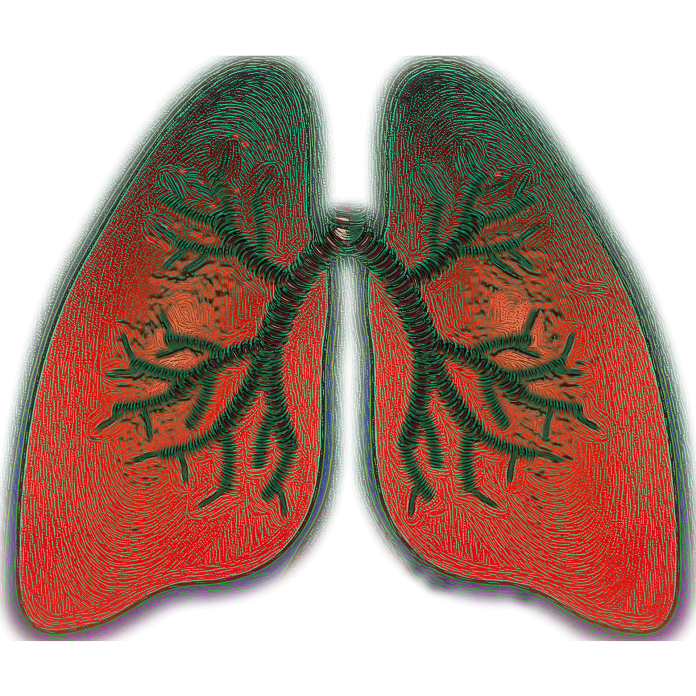Learning the secrets of healing damaged lungs is an increasingly urgent question for doctors and patients. Problems with respiratory health are a major cause of disability and death all over the world.
The lungs are the main organs of the respiratory system so keeping the lungs healthy is an integral part of a person’s overall wellness. Several factors can affect the health of our lungs, such as lifestyle choices (e.g., smoking) and environmental factors (e.g., living in a polluted area, including but not limited to certain viral infections).
Firstly, let’s take a quick look at the most common ways lungs can be damaged.
Smoking
Smoking is the leading cause of lung damage. It damages the cells that line the lungs, making the lungs weaker and more susceptible to infections. The smoke is filled with cancer-causing chemicals that can immediately affect the lungs once inhaled. The smoke does not only affect the smoker’s lungs but also non-smoking bystanders’ lungs can be damaged.
Environmental Factors
Asbestos, radon, dust, and air pollution are just some of the environmental factors that can damage the lungs. Various occupational exposures to chemicals can also cause lung damage.
If you can, look into relocating to a place where your home is not next to a busy highway or polluting industrial plant.
Even prolonged exposure to dust and other allergens such as pet dander and molds can weaken and harm the lungs.
How to Heal Damage to Your Lungs
The good news is that the lungs have the ability to repair much damage on their own if we help them and are proactive. To do that, we have to be willing to make the necessary habit changes. Here are some of the ways we can heal damaged lungs.
- Quit Smoking
This seems to be pretty straightforward, but it can be a difficult one for those who have been smoking for years. However, the benefits of quitting smoking far outweigh the effort required to do so. Try patches/gums, medications, or hypnosis. Just get it done.
Do you know that you can begin to repair the damage in your lungs caused by smoking in as little as a few hours? Scientists believe that the lungs have the capacity to heal the damage on their own, as long as the person quits smoking.
- Steam Therapy
Inhaling the water vapor from steam can help loosen the mucus in the lungs’ airways. It also provides rapid relief to people experiencing difficulty in breathing by opening up the airways and breaking up the mucus that fills the lungs.
- Mucus Drain
Similar to steam therapy, mucus draining aims to release mucus from the lungs but through different postural techniques. Mucus draining can be done while lying on your back, on your side, or on your stomach and by practicing a breathing exercise called 1:2 breathing, wherein exhaling takes twice as much time as inhaling.
It is believed that practicing postural mucus draining for a few minutes every day can improve lung function and prevent lung infections.
- Exercise and Diet
It is no secret that exercising regularly is good for anyone’s health. Through exercise, the body increases its breathing rate, which results in having a greater oxygen supply. It also strengthens the lungs and improves circulation by getting rid of excess carbon dioxide in the body.
Consuming healthy food is another way to heal damaged lungs. Eating foods rich in anti-inflammatory properties such as turmeric, green leafy vegetables, blueberries, walnuts, and beans can help reduce the inflammation of the airways in the lungs and can aid in proper breathing.
Green tea, which is rich in antioxidants, may not only reduce inflammation but can also help protect lung tissue from inhaled irritants.
Foods and Vitamins to Help
Let’s look in a little more detail at foods and vitamins that may especially support lung health. No guarantees, but solid information.
A healthy lifestyle begins with eating foods that nourish your body and not toxify it. Fruits and vegetables are packed with nutrients that are optimal in achieving overall wellness. Several illnesses can be avoided by having a clean and healthy diet. Our respiratory health can greatly benefit from different foods and vitamins in order to keep them functioning properly and be protected from illnesses.
Here are some fruits, vegetables, and vitamins that you can include in your diet to help keep your lungs strong and robust.
Broccoli
Broccoli is rich in antioxidants and Vitamin C, both essential for lung health. It also contains carotenoids, folate, and phytochemicals that help keep the lungs healthy by fighting off damaging chemicals. Broccoli is good for people who are suffering from chronic pulmonary diseases, as it also has anti-inflammatory properties that can help reduce swelling in the lungs caused by COPD illnesses.
Aricots
Apricots are not only delicious, but they also help protect your lungs and help keep them strong. The sweet fruit is filled with vitamins and minerals such as beta-carotene and lycopene, as well as anti-inflammatory, antibacterial properties that can lower the risks of infections and chronic lung diseases.
Berries
Berries, especially acai and blueberries, are great for keeping the lungs healthy and free from diseases. Berries are rich in antioxidants that can help fight damaging free radicals that affect the lungs. These fruits can also help boost the immune system to help prevent infections.
Cayenne Pepper
Cayenne pepper contains high levels of capsaicin which regulate lung secretions. Capsaicin can also protect the mucus membranes in the upper and lower respiratory tract from infection. Cayenne pepper contains beta-carotene that can aid in reducing the frequency of asthma attacks.
Turmeric
Turmeric is known for its anti-inflammatory properties found in its curcumin component. Drinking turmeric tea can reduce inflammation in the airways, thus can be beneficial for relieving symptoms of asthma and chronic obstructive pulmonary diseases.
Walnuts
Walnuts are a good source of omega-3 fatty acids that can fight symptoms of the different respiratory illnesses caused by inflammation in the lungs. Eating a handful of walnuts daily can help keep the lungs strong and protected from inflammatory ailments.
Ginger
Ginger is another food that is rich in anti-inflammatory properties. Ginger can help detoxify the lungs by eliminating harmful pollutants present in the respiratory system. It can also improve air circulation in the respiratory system and unclog air passages to relieve congestion.
Vitamin A
Vitamin A is essential for making sure our bodies are strong and healthy. It supports cell growth, not only of the lungs but also of the heart and kidneys. Vitamin A has been used to help repair lung tissues damaged by toxins.
Having enough vitamin A in the body helps provide the lungs the capacity to repair on their own. An increase in vitamin A intake can help patients suffering from chronic obstructive pulmonary diseases.
Vitamin C
Vitamin C is well-known for its immune-boosting capabilities, which can protect your lungs from infections. Because vitamin C is an antioxidant, it helps in eliminating free radicals and toxins in the body, particularly in the lungs.
The majority of diseases related to the lungs are caused by harmful chemicals. Taking vitamin C supplements and eating foods that are rich in vitamin C can be a great way to maintain lung health.
Vitamin E
Vitamin E, which is commonly derived from vegetable oil, is believed to be effective in lowering the risk of contracting chronic obstructive pulmonary diseases.
Studies have shown that long-term intake of vitamin E supplements can help reduce the chances of getting COPD as a person ages, and COPD is more common among older patients. Vitamin E can also help neutralize toxins in the lungs and other organs in the body.
A healthy diet is essential in keeping our bodies strong and healthy. Making sure that we eat foods that are full of nutrients can help us in maintaining the proper function of all the body’s systems.
Foods that contain antioxidants and have anti-inflammatory properties help ensure that our lungs and other organs in the body are working well. Combined with regular exercise and healthy habits, we can ensure that our lungs and our entire bodies are in their best possible shape.
Conclusions
Lung damage may sound as if the consequences are out of your control, but there are ways to help your lungs heal. Change in lifestyle and mindset can be beneficial, not just to your lungs but to your overall wellness.
Some damage may not be able to heal, but doing what you can to improve or at least protect whatever lung function you have makes sense.
Looking into natural ways to heal your lungs can also help, as these are nature’s way of helping you heal your body. Not only do you achieve a healthier respiratory system, but you also get to experience renewed physical and mental health. Self care for prevention of lung health problems and/or their complications is a wise decision to make.






